Want to Get Pregnant? Learn To Manage Hormones | Complete Guide on Hormones & Fertility
Fertility, Manage Hormone, Natural Conception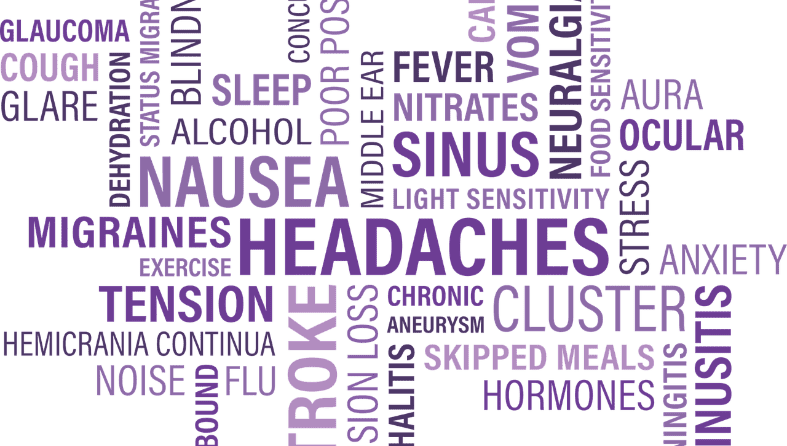
Did you know that Hormonal Imbalance influences several critical body processes including the ability to conceive? An incorrect quantity of hormones related with fertility in one or both the partners can make conception a daunting task. Couples usually struggle to notice that hormonal imbalance is the root cause for their infertility. However, now you can take matters into your own hands by using an at-home hormone test to find out if your hormone levels are the source of the problem.
Hormonal Imbalance and Fertility
When your hormones are in perfect balance, your body — reproductive system included — runs smoothly. However, when you have a hormonal imbalance, it can wreak havoc on your body. When you’re trying to get pregnant, this can feel overwhelming and, if you’re like most people, you may not even realize what’s going on.
While it’s natural for hormones to fluctuate (men experience daily fluctuations; women go through different fluctuations depending on where she’s at in her menstrual cycle), it’s not normal for them to be completely out of whack. When a hormonal imbalance occurs, your fertility is negatively impacted and your journey to conception delayed.
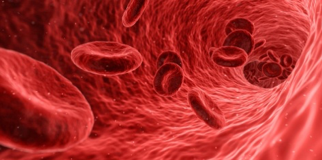
What do hormones have to do with fertility?
Hormonal imbalances can change your reproductive health and the outcome of your treatments or your family planning. But to better understand how hormonal imbalance can affect fertility, it’s important to start with baseline knowledge of the role different hormones play in your reproductive health.
Hormones are chemical messengers that structure how complicated processes like, for example, the baby-making process, are done; that is to say, hormones play a vital role in the fertility process. Hormones are deposited into the bloodstream by glands that make up the endocrine system. At times, chemicals may interfere with the endocrine system — these are known as endocrine disruptors, and they can cause quite a bit of trouble for those struggling with fertility issues.
The following hormones play a large role in fertility: gonadotropin-releasing hormone (GnRH); follicle-stimulating hormone (FSH); luteinizing hormone (LH); estrogen; progesterone; and testosterone. Let’s explore what each of them does.
-
Follicle-stimulating hormone (FSH)
This hormone has different functions in women and men. For women, FSH controls the menstrual cycle and egg production via the ovaries. With men, FSH controls sperm production; interestingly, FSH levels in men is fairly consistent, whereas, with women, FSH levels vary throughout a woman’s cycle and are highest just before an egg is released.
-
Luteinizing hormone (LH)
The pituitary gland produces LH; this hormone aids in regulating the menstrual cycle and egg production, much like FSH — the difference being that, while FSH causes an egg to mature, LH causes the egg to release from the follicle. It is, of course, different in men as well: FSH deficiencies cause low levels of LH, resulting in decreased sex drive or sexual dysfunction, infertility, and low sperm count because of the absence of testosterone — another negative side effect of lower levels of LH in men.
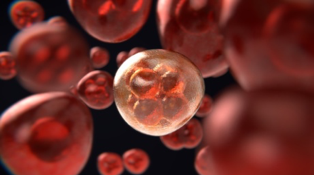
-
Gonadotropin-releasing hormone (GnRH)
Released by the hypothalamus part of the brain, GnRH produces follicle-stimulating hormone (FSH), as well as luteinizing hormone (LH).
-
Estrogen
This is another hormone that is secreted by the ovaries on-command, per the signaling of the LH and FSH, once the hormones have been secreted. Only a small amount of estrogen is needed (with peak levels at around 3500 pg/mL) for the uterus to accept the embryo. Conversely, if there is too much estrogen present, it can drastically alter the genetic process at the site of implantation and decrease the window available for implantation.
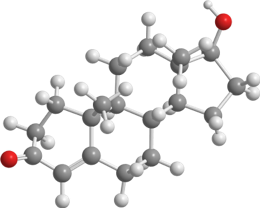
-
Progesterone
Progesterone is a sex hormone found in women that is also released by the ovaries on-demand; low levels of progesterone can lead to infertility. The main function of the hormone is to prepare a woman’s body for pregnancy by thickening the uterine lining for a fertilized egg. If no fertilized egg appears, a woman’s progesterone levels will drop, and she will begin menstruating. Progesterone is also necessary for breastfeeding and breast development in women, so even after you give birth, an imbalance of progesterone can have a negative impact.
-
Testosterone
Similar to estrogen and progesterone, testosterone is secreted according to the FSH and LH. It is an important male hormone — though both males and females have it— that plays a vital role in fertility. In men, low testosterone, or hypogonadism, can lead to low sperm count, making it less likely that they can impregnate a woman. Hypogonadism can be treated with hormonal therapy and should be closely overseen by a doctor. For both men and women, low testosterone can lead to loss of sex drive, which plays a clear role in an infertile couples’ struggles. When women have low testosterone, it can negatively affect the follicle-stimulating hormones that aid in reproduction.
What causes hormones to get out of balance?
No matter where you are in your journey of trying to get pregnant — from deciding you’re ready to go off birth control to undergoing fertility treatments — your body is going through some major changes. In fact, your body is always changing; your hormones fluctuate daily, weekly, and monthly throughout the stages of your menstrual cycle.
Some components that lead to hormonal imbalance include:
-
Obesity
Infertility and obesity often go hand-in-hand, with further studies showing that there is a strong link to obesity and reproduction issues. Obesity can cause the hormonal imbalance polycystic ovarian syndrome (PCOS), which can lead to infertility; additionally, an abnormally high amount of insulin production can cause a body to release androgens, which can affect regular ovulation.
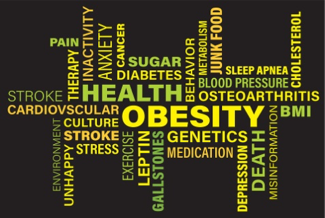
-
Smoking
Smoking is also a factor that can affect hormonal balance and, subsequently, fertility, with female smokers having “reduced ovarian function” (i.e., decreased embryo counts), and male smokers having reduced sperm counts and a lower amount of semen by volume.
What are symptoms of a hormonal imbalance?
By now, you’re probably wondering if you could have a hormonal imbalance. Even without consulting a doctor, you can easily recognize some of the signs. According to the Women’s Health Network, signs of a hormonal imbalance in women can include:
- Irregular or missing periods
- Weight gain
- Moodiness and/or irritability
- Skin issues (especially acne, which many women with polycystic ovarian syndrome experience)
- Hair loss or male pattern hair growth
- Infertility
- Fatigue
It’s entirely possible and even likely that you have had some or all of these symptoms, without realizing how closely they correlate with your hormones.

You have hormonal imbalance — now what?
There are many options you can utilize in order to get your hormones back to healthy, balanced levels. Both natural, at-home remedies and medical treatments can be effective. It is, of course, imperative that you do your research when figuring out what treatments are right for you and your body — be sure to discuss with your doctor before taking any medication.
If you want to go the natural remedy route (after speaking with your doctor), know that there are several methodologies you can try, from natural hormonal inhibitors to losing weight, eating healthy, and implementing a workout regimen.
-
Aromatase inhibitors
These are natural estrogen blockers that men can take to regulate their hormonal imbalance. Studies have shown that aromatase inhibitors can also prevent cancer in postmenopausal women. Grape seed extract is one natural aromatase inhibitor. Other common estrogen blockers include chrysin, wild nettle root, and maca. In regards to maca aiding in infertility issues, one study found that in nine men who took maca for four months had an increase in “seminal volume, sperm count, and sperm motility.”
-
Healthy diet and exercise
A nutritious, fertility-friendly diet is a big part of balancing your hormones. Consider adding plants in the cabbage family (like broccoli) to your diet. Vegetables are packed with much-needed electrolytes, and cruciferous vegetables hold DIM, which is a phytonutrient that helps with estrogen metabolism. Adding in a regular exercise routine that combines cardio and strength training can help balance hormones — for example, getting your heart rate up to an active level for, at a minimum, 30 minutes each day, increases estrogen levels.

Must Read: Healthy Lifestyle
-
Reducing or eliminating alcohol consumption
Studies have shown that even moderate drinking can play a part in female infertility. Chronic drinking can affect the hormones that regulate your reproductive system, like androgens and estrogens. These hormones are synthesized by the testes and ovaries, respectively. An overabundance of alcohol can affect how these hormones are synthesized, leading to negative effects on fertility.
Hormonal imbalance is a prominent source of infertility, but is often treatable and can be normalized with medications and lifestyle changes. If you are planning to start your family or have been trying to conceive for a while now, it is better to understand the hormonal balance in the bloodstream of your body.
About The Author
 Dr. Debashish Sarkar, MBBS(HONS), MS(OBGYN), Diploma in Advanced Gynae Laproscopy (Germany), FRM (Singapore)is the Core Fertility Specialist & Director at Morpheus UMA International IVF Centre, Sarkar Hospital, Agra. He has been awarded for “Outstanding Academic Achievements & Research Work” Padamshree by Dr. RP Soonawala, Jaipur.
Dr. Debashish Sarkar, MBBS(HONS), MS(OBGYN), Diploma in Advanced Gynae Laproscopy (Germany), FRM (Singapore)is the Core Fertility Specialist & Director at Morpheus UMA International IVF Centre, Sarkar Hospital, Agra. He has been awarded for “Outstanding Academic Achievements & Research Work” Padamshree by Dr. RP Soonawala, Jaipur.






Your Comment Is Valuable For Us
Thanks For Your Feedback.